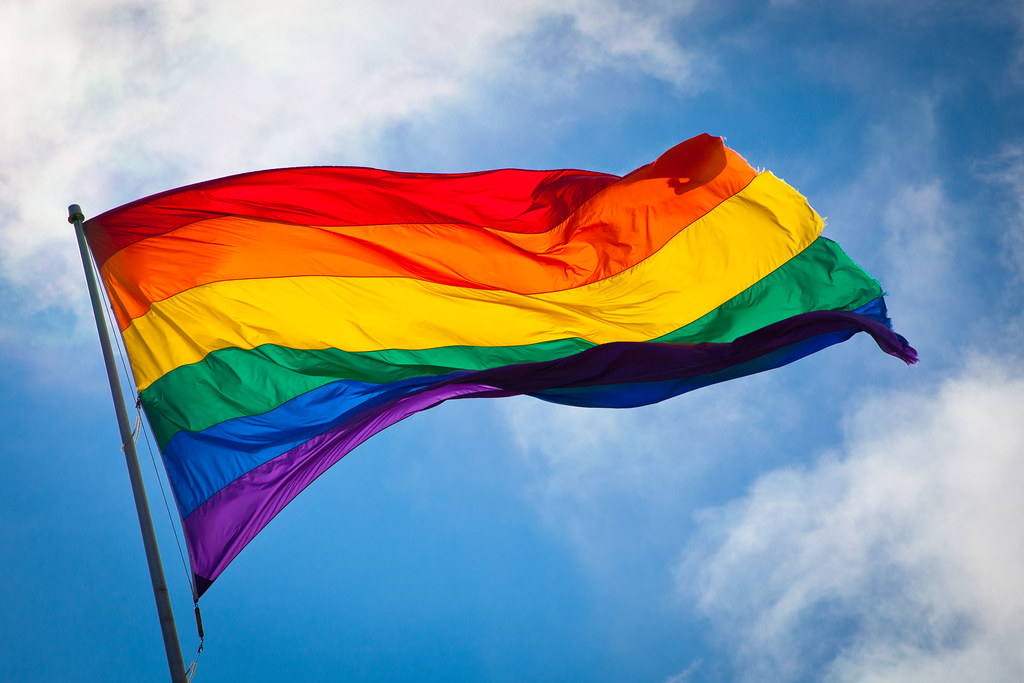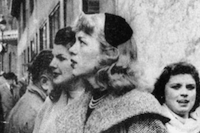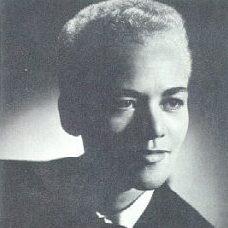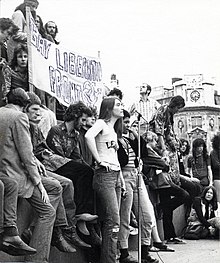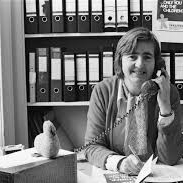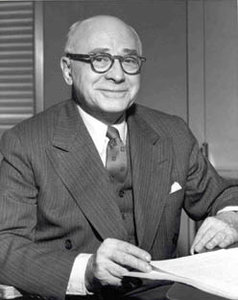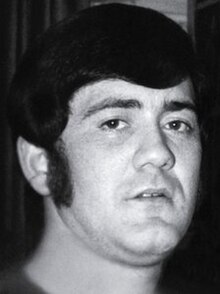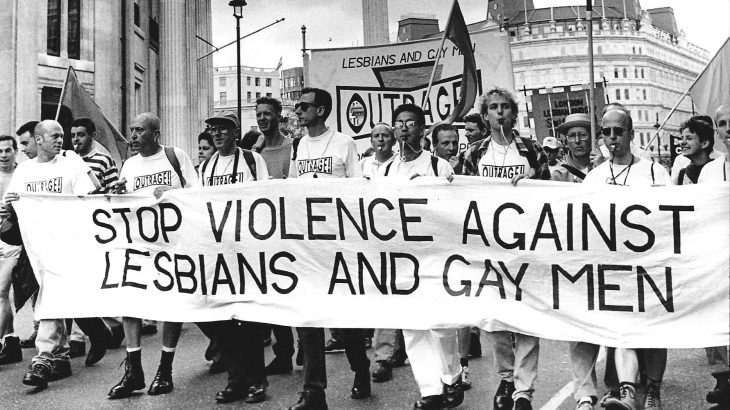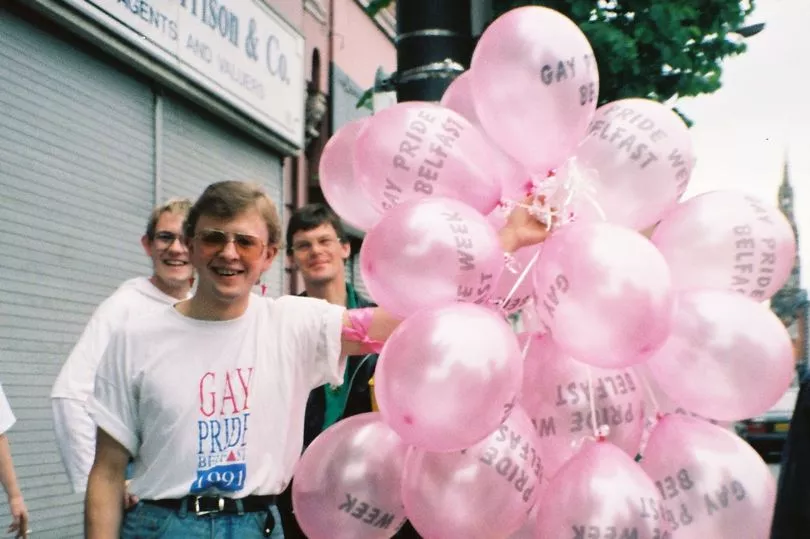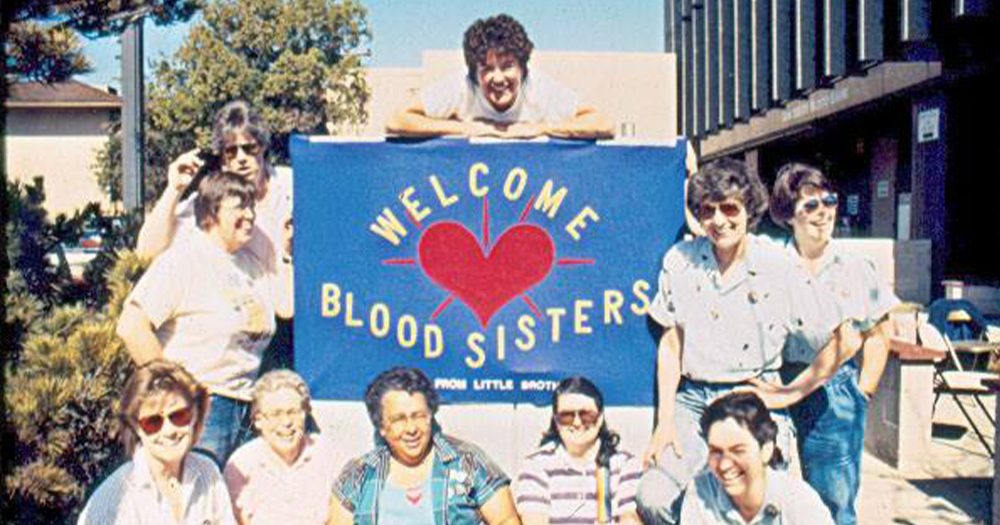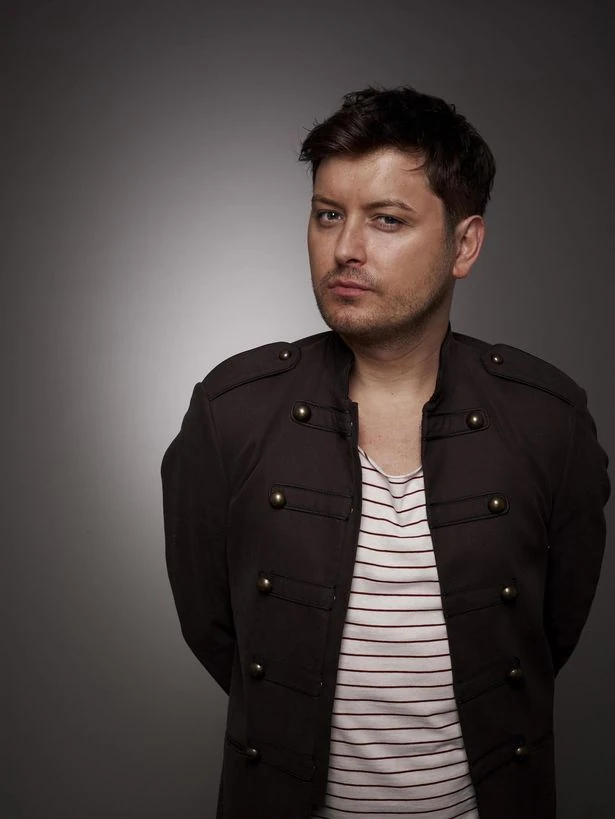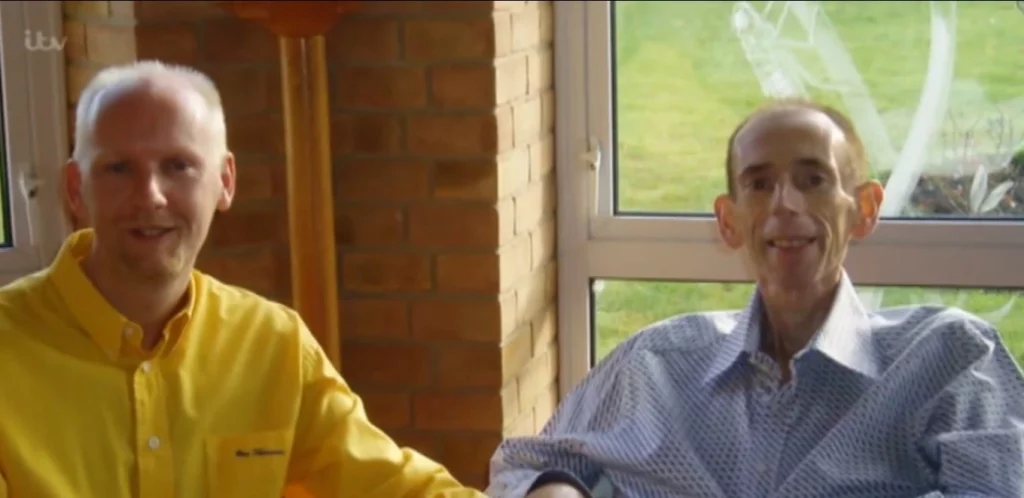Pride has come a long way in the 54 years since the modern LGBTQ+ liberation movement began at the Stonewall Inn in 1969. From the decriminalisation of same sex relationships, to the legalisation of same sex marriage, to the inclusion of intersex people on the modern Pride flag, the UK is continuing to make strides towards equality and inclusivity to all, regardless of sexuality and gender.
There’s still a long way to go, but this Pride month, we’re looking back at how far we’ve come, and remembering those people who have pioneered progress in the UK and worldwide, and made their community proud.
Click below to jump to any decade:
1950s
1950
Roberta Cowell became the first British woman to undergo gender reassignment surgery and have her gender changed on her birth certificate.
1954
The Wolfenden Committee was formed after the number of men imprisoned for homosexual acts rose to over one thousand per year. The Wolfenden report proposed that homosexual acts between two consenting adults should not be considered a criminal offence. The report was stalled in Parliament in 1960.
1958
The Homosexual Law Reform Society was founded, and began their campaign for the legalisation of same-sex relationships in the UK.
1960s
1963
The Minorities Research Group became the first social and political organisation to openly advocate for the interests of lesbians in the UK, providing education, support and socialisation for lesbian and bisexual women.
1964
The North Western Homosexual Law Reform Committee (NWHLRC) was founded to promote both legal and social equality for lesbians, gay men and bisexuals.
1966
The Beaumont Society was formed to support transgender individuals, inform and educate the general public, improve understanding among medical and legal professions and encourage further research into the cause and experience of being transgender.
1967
Private sexual relationships between two consenting men over the age of 21 were decriminalised by the Sexual Offences Act 1967. This did not extend to include those employed by the Merchant Navy or Armed Forces, and did not affect laws in Scotland, Northern Ireland, the Channel Islands or the Isle of Man.
1969
NWHLRC became a UK-wide organisation under the rebranding of the Committee for Homosexual Equality (CHE). It gained support from several leading figures in medicine, the church and the arts, such as broadcaster Ray Gosling.
The Stonewall Riots began in Greenwich Village, New York, when the local police raided Stonewall Inn. Stormé de Larverie, a biracial lesbian drag king, is credited with starting the riot by pushing back against the police raiders and calling for aid from onlookers. These riots marked the beginning of the modern LGBT liberation movement, and Pride marches are held internationally every year to commemorate the anniversary of the riots.
1970s
1970
The UK branch of the Gay Liberation Front (GLF) was established in London, mirroring the US movement campaigning for gay liberation and gay rights. The GLF acted as the foundation for the formation of many more recent groups such as Queer Nation, Sisters of Perpetual Indulgence and Stonewall.
Unfortunately, that same year the Corbett v Corbett divorce case established a new precedent determining that a person’s sex could not be legally changed from that which was assigned at birth, when British aristocrat Arthur Corbett sought an annulment from his marriage to wife April Ashley on the grounds that she had been assigned male at birth. This precedent was initially restricted to matters concerning marriage, but was later applied more liberally.
1971
This regression continued with the passing of the Nullity of Marriage Act, which created an explicit ban on same-sex marriages in England and Wales.
1972
London held its first Pride event, a rally attended by around two thousand people. It took place on 1 July, on the nearest Saturday to the 3rd anniversary of the Stonewall Riots.
1973
The first British gay rights conference was held in Lancashire, overseen by the Campaign for Homosexual Equality.
The same year, Brighton hosted its first ever Pride event. It was a one-off event at this time, however from 1991 Brighton began to hold regular annual Pride parade.
1974
The London Lesbian and Gay Switchboard was established to provide information and support to LGBTQ+ citizens and their families.
The same year, Maureen Colquhoun came out publicly and became Britain’s first openly lesbian Labour MP.
The UK’s first National Transvestite/Transsexual (TV/TS) Conference was held in Leeds.
1976
The Gay Christian Movement was founded, and later rebranded as the Lesbian and Gay Christian Movement.
1977
The Trade Unions Congress (TUC) had its first conference debating workplace rights and protection from discrimination for gay and lesbian workers.
A bill was introduced in an attempt to reduce the age of consent outlined in the Sexual Offences Act 1967 from 21 to 18, however at this time it was rejected by the House of Lords.
1979
The World Professional Association for Transgender Health was founded under its original name The Harry Benjamin International Gender Dysphoria Association, after the German endocrinologist and sexologist Harry Benjamin, who was renowned for his clinical work with transgender people.
1980s
1980
Scotland matched England’s Sexual Offences Act of 1967 by decriminalising sexual relationships between two consenting men over the age of 21.
The very first Black Gay and Lesbian Group was established in the UK, campaigning for the rights and support of LGBT people of colour.
1982
Northern Ireland joined England and Scotland by decriminalising private sexual relationships between two men over the age of 21.
The UK set up its first AIDs charity in response to the death of Terry Higgins. He worked as a House of Commons reporter and part-time DJ, and was one of the first known deaths from an AIDs-related illness in the UK at the age of 37. The charity was named the Terrence Higgins’ Charity in his honour.
1983
Channel 4 airs the UK’s very first gay television programme, title One in Five in reference to the estimated ratio of gay people in the UK population at the time.
1984
Chris Smith joined his fellow Labour MP Maureen Colquhoun as Britain’s first openly gay male MP. In 2005, he also became the first MP to publicly declare his status as HIV positive.
The Politics of Bisexuality conference was established, later forming the UK National Bisexual Convention (BiCon), which is now the largest annual gathering of the UK bisexual community.
1987
The International Foundation for Gender Education (IFGE) was founded, aiming to promote increased acceptance of transgender individuals and educate the general public on the realities of being transgender.
1988
The Local Government Act 1988 is passed, including the infamous Section 28, which prevented local authorities from teaching students about homosexual relationships in schools, or promoting them through published materials. Stonewall UK was formed as a response to this new legislation, campaigning for a reversal of the decision and increased rights for the LGBTQ+ community.
Pioneering the progression into equal rights, Denmark became the first country in the world to legally recognise same-sex relationships.
1990s
1990
In response to the murder of gay actor Michael Boothe in April 1989, and rising numbers of assaults and murders of other gay men nationwide, the British political group OutRage! was formed in 1990. They campaigned for greater protections against violent discrimination through non-violent direct action and civil disobedience.
LGBTQ+ police officers similarly banded together, forming the UK’s first Lesbian and Gay Police Association.
1991
This year marked Northern Ireland’s first official Pride event in Belfast, headed by Niall Gillespie. The initial parade included only about one hundred people.
1992
In a major step in the right direction, the World Health Organisation (WHO) finally declared that same-sex attraction would no longer be classified as a mental illness, protecting many LGBTQ+ people from controversial treatments to try to ‘cure’ their sexualities, which often resulted in trauma and other detrimental side effects.
Press For Change was also established in 1992, providing legal support for the transgender community in the UK and promoting structural change to reduce discrimination based on gender identity.
Stonewall released its first major campaign, in a bid to reduce the age of consent for homosexual relationships to match that of heterosexual relationships in the UK.
1994
With help from the Stonewall campaign, the House of Commons attempted to have the age of consent lowered to 16, as it was for heterosexual couples. While not yet successful in this venture, they were able to make some headway, reducing the age of consent to 18 for same-sex relationships.
1995
The Mermaids Charity was founded, committed to assisting the parents and families of transgender youths. To this day they continue to provide support and advice for those caring for children and teenagers who fall under the transgender umbrella.
1996
For the first time, the sex equality right to protection from discrimination was extended to include transgender people, in a landmark victory in the P v S and Cornwall County legal case. This occurred when the unnamed P was dismissed from her job after taking sick leave to undergo gender reassignment surgery.
1997
The Equality Network was established in Scotland, allowing LGBTQ+ individuals a voice in policy making.
1999
In honour of Rita Hester, a transgender woman killed in 1998, the Transgender Day of Remembrance was instated, to occur on November 20th every year. This day is observed to commemorate all of the transgender people who had lost their lives as a result of gender identity discrimination and violence.
That year, the Admiral Duncan pub in Soho, one of the oldest known gay pubs, was bombed by the neo-Nazi David Copeland. Three people were killed and another eighty three were injured in the blast.
The Queer Youth Alliance was founded by David Joseph Henry and CN Lester, to represent the views of LGBTQ+ youths in the UK and campaign for equal rights and visibility, as well as providing support for newly out individuals.
By the end of the decade, the term acronym of GLBT had been swapped to LGBT, to honour the lesbian community’s efforts during the AIDs crisis. Many lesbian group had acted as nurses for those suffering in hospitals when others refused to enter their rooms for fear of the disease, as well as organising blood drives for those in need.
2000s
2000
33 years after the Sexual Offences Act 1967 was introduced, its legislation was finally extended to include those in the Armed Forces. LGBTQ+ individuals would be allowed to openly serve in the military.
Section 28 was also abolished in Scotland, allowing homosexual material to be discussed and taught in schools. However, in England, Northern Ireland and Wales the ban remained.
2001
In an attempt to further mitigate workplace discrimination, Stonewall formed the Diversity Champions Programme, to educate employers and encourage fair treatment of all employees regardless of sexuality and gender identity.
At long last, the age of consent outlined in the Sexual Offences Act for same-sex couples was reduced to 16, the same as that of straight couples.
2002
With the Adoption and Children Act 2002, Parliament allowed that any single person or couple could apply to adopt a child in England and Wales, removing the condition that only married couples were entitled to apply. For the first time, same-sex couples were able to adopt children.
Brian Dowling, host of children’s TV show Saturday Morning TV Live, became the UK’s first openly gay children’s television presenter.
2003
Three years after it was withdrawn in Scotland, Section 28 was finally overturned in England, Wales and Northern Ireland. Finally schools across the country would be able to discuss and teach about homosexuality and gender studies.
In a landmark victory, the Employment Equality (Sexual Orientation) Regulations were introduced in the UK, prohibiting discrimination or harassment in the workplace on the grounds of sexuality.
2004
The Civil Partnership Act 2004 was passed, allowing same-sex couples to form civil partnerships which would grant them the same rights and responsibilities as straight married couples, including allowing same-sex couples to name their partner as next-of-kin.
Thanks to the Gender Recognition Act 2004, for the first time in decades, transgender individuals were able to follow the example laid out by Roberta Cowell in 1951, by acquiring new birth certificates and legally identifying as their appropriate gender, rather than that which was assigned to them at birth, overturning the precedent set by Corbett v Corbett in 1970.
2005
The Criminal Justice Act 2003 was amended, adding Section 146 which granted UK courts increased powers over incidences incited by discrimination based on sexual orientation.
Stonewall expanded their aims to include cultural as well as legislative change with the launching of their newest campaign Education For All, aiming to reduce bullying in schools due to sexual orientation by educating students through visits from lesbian, gay and bisexual speakers, including Sir Ian McKellen.
One year on from its legalisation, the first Civil Partnership was formally signed between Christopher Cramp and Matthew Roche, who were given permission to sign before the law took effect due to Roche’s terminal illness.
In the wider continent, Transgender Europe was formed in Vienna, consisting of a network of organisations working to outlaw discrimination against transgender people and promote transgender rights.
2006
Stonewall unveiled a new awards ceremony, the Stonewall Awards. This ceremony was held annually for nearly ten years, recognising people who had affected and improved the lives of those in LGBTQ+ community. Notable winners included John Barrowman (Entertainer of the Year 2006), Sandi Toksvig (Broadcaster of the Year 2008) and Sue Perkins (Entertainer of the Year 2012). The Stonewall Awards also featured a rather pointed callout category for homophobic celebrities and politicians, titled Bigot of the Year.
2007
The Equality Act (Sexual Orientation) Regulations 2007 are introduced, making it illegal to discriminate on the basis of sexuality in the provision of goods, services, education, management of premises and in public functions.
Scotland joined England and Wales by adjusting their adoption laws to allow same-sex couples equal rights regarding adoption and fostering.
Stonewall launched their famous campaign ‘Some People Are Gay. Get Over It!’, to raise awareness of the LGBTQ+ community and combat persisting homophobia in the UK.
2008
Same-sex couples were given equal rights and legal recognition of children who had been conceived through the use of donated sperm, eggs and embryos by the Human Fertilisation and Embryology Act 2008. Previously only the biological parent was legally recognised.
The Gender Intelligence Charity was established, a trans-led organisation committed to increasing understanding of gender diversity and provide support for transgender individuals.
2010s
2010
Gender reassignment becomes a protected characteristic in the Equality Act 2010. This meant that it would be unlawful to discriminate against people in any way on the basis of their having undergone gender reassignment surgery.
2011
LGBTQ+ were granted the right to give blood. This had been prohibited ostensibly due to the possibility of spreading of HIV, but now any gay man who had been celibate for at least 12 months would be allowed to donate.
The Marriages and Civil Partnerships Regulations 2011 allowed LGBTQ+ couple to celebrate their partnerships within religious buildings in the UK, although the civil partnership would still be classified as a civil ceremony rather than a religious one, as was offered to married couples.
2012
Convictions of illegal sexual relations were removed from the criminal records of those still living who had been arrested for having consensual homosexual relationships in the past, thanks to the passing of the Protection of Freedoms Act.
2013
With the introduction of the Marriage (Same-Sex Couples) Act 2013, homosexual couples would finally be able to marry in England and Wales. The law would take effect on the 29th March, 2014.
Stonewall continued their campaigns to improve the situation for LGBTQ+ individuals in schools with the education campaign ‘Gay, Let’s Get The Meaning Straight’, to begin to tackle improper use of LGBTQ+ terminology and language among students and educators.
Brighton also held its first transgender centric Pride event, to celebrate its transgender and intersex communities.
2014
The first UK same-sex marriages took place at midnight on the 29th March, immediately after the Marriage Act 2013 took effect.
The same year, same-sex marriage was legalised in Scotland.
2015
Ireland passed new laws legalising same-sex marriages.
2017
The government issued a posthumous pardon for any deceased gay or bisexual men who had received convictions based on their sexuality under previous laws.
The celibacy clause preventing gay men who’d had same-sex sexual encounters within 12 months was reduced to only 3 months.
2019
WHO at long last declassified transgender issues as a mental illness, protecting many in the transgender community from unnecessary and often harmful treatments intended to ‘cure’ them of their gender non-conformity.
The UK’s LGBTQ+ Traveller community were granted their own place in the London Pride parade for the first time.
2020s
2020
Northern Ireland legalised same-sex marriages, with the first couple married in February 2020. Same-sex couples could now marry anywhere in the UK and have their marriages legally recognised.
2021
The UK opened its first LGBTQ+ centric retirement community in London.
The celibacy clause denying sexually active gay men the right to give blood was lifted, ending the decades-long restrictions and discrimination.
2022
To commemorate the 50 year anniversary of UK Pride, a new limited edition 50p was released to the public.
Conversion therapy was declared ambiguous as Queen Elizabeth announced the UK’s intentions towards banning all conversion therapy aiming to alter sexual orientation. This promise to date has yet to be fulfilled.
 Library
Library Emily Wareing
Emily Wareing 418
418